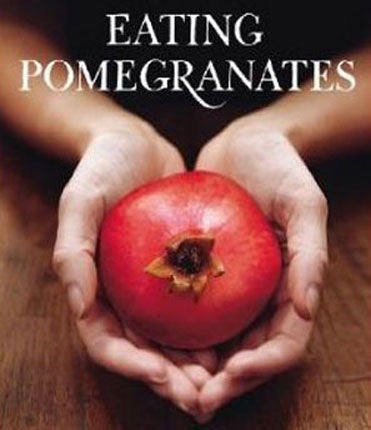Eating Pomegranates: A Memoir of Mothers, Daughters and Genes, By Sarah Gabriel

Your support helps us to tell the story
From reproductive rights to climate change to Big Tech, The Independent is on the ground when the story is developing. Whether it's investigating the financials of Elon Musk's pro-Trump PAC or producing our latest documentary, 'The A Word', which shines a light on the American women fighting for reproductive rights, we know how important it is to parse out the facts from the messaging.
At such a critical moment in US history, we need reporters on the ground. Your donation allows us to keep sending journalists to speak to both sides of the story.
The Independent is trusted by Americans across the entire political spectrum. And unlike many other quality news outlets, we choose not to lock Americans out of our reporting and analysis with paywalls. We believe quality journalism should be available to everyone, paid for by those who can afford it.
Your support makes all the difference."Didn't Persephone eat the pomegranate pips though it condemned her... to six months of every year in the underworld?" Sarah Gabriel has consumed the obscene fruit of death. So did her mother in her prime. In the Greek myth, when the flower maiden Persephone is raped to the underworld, the corn goddess Demeter lays the world waste, abdicating her function as guarantor of harvest and civilisation. For mother and daughter are indissolubly one being. On their joint survival, life on Earth depends.
Gabriel lost her own mother to inherited breast cancer, through a rare and deadly mutation on the BRCA1 gene. She develops it herself; if it kills her, she leaves two daughters to repeat her own story.
To say that Eating Pomegranates is beautifully written is to understate: it has a psalmic quality, rising to a Shakespearean English, the testament of a "broken fragment, slivered and disbranched from her material sap". At the same time, the memoir is a raw explosion of rage. Scathing ire is a proper part of grief and loss. Gabriel attacks her own failure to take early precautions and the phoney sympathy that isolates cancer victims. At intervals, she narrates the history of breast cancer, from Fanny Burney's account of mastectomy without anaesthetic to the founding of cancer hospitals.
The reader of Eating Pomegranates quails before the writer's scalpel. For we are all guilty of "painting a big red cross" on our front door, "so that the Angel of Death will pass over". Gabriel cleverly shapes the reader's experience, to plunge us from present trauma into the shocking loop of memory. The most terrible effect of cancer is less its intimate penetration of the body or the prostration and indignity of treatment than its corruption of the sense of self, family love and community. Movingly, Gabriel achieves a quiet ending by asking her husband, in an echo of marriage vows, for a pledge: "'R, if I die, will you put the children first?' ... 'I will,' he says, 'I will.'"
Join our commenting forum
Join thought-provoking conversations, follow other Independent readers and see their replies
Comments